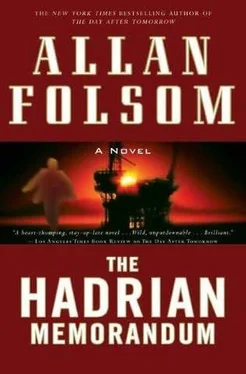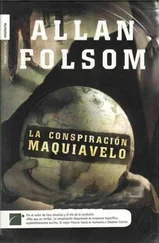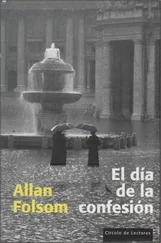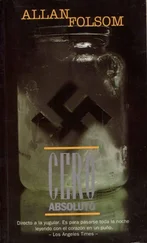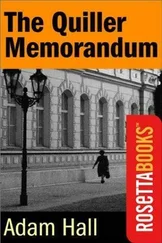Franck looked to fifty-year-old Karl Zeller, the white-haired taxi driver who had driven Marten and Anne Tidrow from the Hotel Mozart Superior and delivered them to the Adlon’s rear entrance, by his records, at precisely 6:02 P.M.
“We will be very happy to help as we can, Hauptkommissar,” Stonner said respectfully, “but how do you know these people were guests of the hotel?”
“We don’t, Herr Stonner, but we are going to find out.”
7:32 P.M.
The two walked quickly down Schiffbauerdamm, the roadway on the far side of the River Spree from Unter den Linden. Marten’s suitcase was long gone, weighted down with chunks of concrete taken from a construction Dumpster near the Reichstag and tossed into the river. His own essentials-passport, driver’s license, credit cards, cash, and the dark blue throwaway cell phone he’d used to call President Harris-he carried on his person.
7:34 P.M.
The river and city still glimmered in the warm glow of the long summer day. In a way the daylight helped because it enabled them to blend in with the tourists crowding the streets and cafés that sat on the quay above the Spree, where people could look out at the maze of tour boats plying the water. After sunset the crowds would lessen, making them more visible to the police who seemed to be everywhere-on street corners, on motorcycles, in patrol cars-in a massive search for the still-unnamed man whose blurred photograph Hauptkommissar Franck had shown on television.
In the half hour since they’d left the Adlon, Marten had said little, just turning this way and that at Anne’s direction. Clearly she knew the city, at least this part of it, and was seemingly intent on taking them to some destination in particular. Just where that was and who would be waiting when they arrived were questions that made him as uneasy as the two that remained from earlier: how she had known where he was staying in Berlin and where he’d gone when he went to meet with Theo Haas. And then there was the business with the shower before they’d left the Adlon and the phone call she’d made from behind its closed door. At this point they all troubled him. As if he didn’t have trouble enough.
“Where are we going?” he said abruptly.
“It’s not far.”
“Wherever it is, it’s taking too long. We’re giving the police too much time.”
“I said, it’s not far.”
“What’s not far? Bar, restaurant, another hotel, what?”
“A friend’s apartment.”
“What friend?”
“Just a friend.”
“The one you called when you went in to take a shower?”
“What do you mean?”
“The shower was an excuse. The real reason you went in there was to make a call without me hearing.”
“Darling,” she smiled, “I wanted to get cleaned up, nothing more.”
“Your BlackBerry was on the bed before you went in. It wasn’t there afterward.”
Anne’s smile faded. “Alright, I did make a call. It was to my friend. To help us.”
“Then why the secret?”
“It was personal. Do I have to explain everything?”
“Just get us there.”
“We-” She hesitated.
“We-what?”
“Have to wait.”
“For what?”
“She has to make arrangements.”
“Arrangements?”
“Yes. She’ll call me when it’s ready.”
“Who the hell is ‘she’?”
Anne’s eyes flashed with anger. “Understand something. The police are everywhere. There is no other place for us to go.”
Marten didn’t like it. Any of it. He pressed her hard. “Verbrechen des Jahrhunderts.”
“What?”
“Verbrechen des Jahrhunderts. Crime of the century. That’s what you translated from the television. You understand German. You know your way around the city. You had me followed from the airport. That’s how you knew where I was staying. You had somebody watching the hotel, telling you the moment I left it and which way I had gone. It’s how you found me in the park. Then with the police swarming all over you suddenly have to take a shower. And now we’re going to a ‘friend’s’. A woman who has to make ‘arrangements’ first. What kind of friend is she, darling, when everyone in the city is looking for me, and probably by now for you as well? You told me to stop playing games; now it’s your turn. You’re not just Striker Oil. You’re something else. Who? What?”
Ahead was Weidendamm Bridge where Friedrichstrasse crossed the river. Stairs led up to it.
“Take the stairs,” she said quietly.
“I asked you a question.”
Just then two Berlin policemen went by on motorcycles, slowing as they did. A half block later, they stopped and looked back, one of them speaking into a microphone mounted to his helmet. Abruptly Anne took Marten by the hand and pulled him around.
“Kiss me.” She looked into his eyes. “And act like you mean it. Do it now.”
Marten glanced at the police and then did. She kissed him back, long and hard.
The motorcycle cops watched, then rode off.
“The stairs,” she said again and steered him toward them
7:40 P.M.
7:42 P.M.
Two more motorcycle officers were waiting when they reached the top of the stairs at Weidendamm Bridge. Their machines were parked to one side, and they stood on the sidewalk chatting. Left was the way Anne wanted to go, but to do it they would either have to walk directly past the police or cross the street to the other side, which might well be interpreted as a deliberate move to avoid them. Instead Anne turned them right across the bridge.
As they went she leaned in and kissed Marten again, whispering as she did. “Ahead is the train station. As soon as we get there, go inside.”
They didn’t look back. If the police were following them, there was no way to know. Forty seconds later they were at the station and going inside.
“If they saw us go in and they’re onto us,” Marten said quickly, “they’ll have cops watching every train. They probably do anyway. We have to get out, and now, but without getting on a train or going back out on the street.”
“This way.” Anne led them past the ticketing booths to a down escalator.
At the bottom she turned them left and then right and along a corridor that took them to an exit door at the far end. From there they crossed to the banks of the Spree as it wound through the city. Seconds after that they were at the top of a landing, then walking down a gangplank with a large group of tourists to board a double-decked tour boat named the Monbijou . The lower deck was a restaurant and already full, so the upper deck was where they were instructed to go. The upper deck, open to the view of anyone watching from another boat, a bridge, or from the banks of the waterway itself.
HOTEL ADLON, ROOM 647. 8:05 P.M.
“Get a technical unit up here right away,” Hauptkommissar Emil Franck snapped at Detective Bohlen. Immediately the ghostly thin Bolen clicked on a police radio and left.
It had taken Franck and his colleagues Bohlen and Prosser-with the help of the white-haired taxi driver, Karl Zeller, and concierge Stonner’s excellent staff-little more than thirty minutes to determine the room number and identity of the woman Zeller had picked up from the Hotel Mozart Superior and dropped off at the Adlon’s rear entrance at 6:02 P.M. With her had been a man who clearly resembled the person wanted by the police in the murder of Theo Haas.
“Her full name as registered is Hannah Anne Tidrow,” Stonner read from a computer printout just handed to him by a young hotel employee in a navy business suit.
“Address: 2800 Post Oak Boulevard, Houston, Texas. She checked in at one ten this afternoon and requested an open departure date. She has stayed with us before. She used an American Express credit card in the name of the AG Striker Oil & Energy Company of Houston, Texas. The billing address and the address she gave are the same.”
Читать дальше
